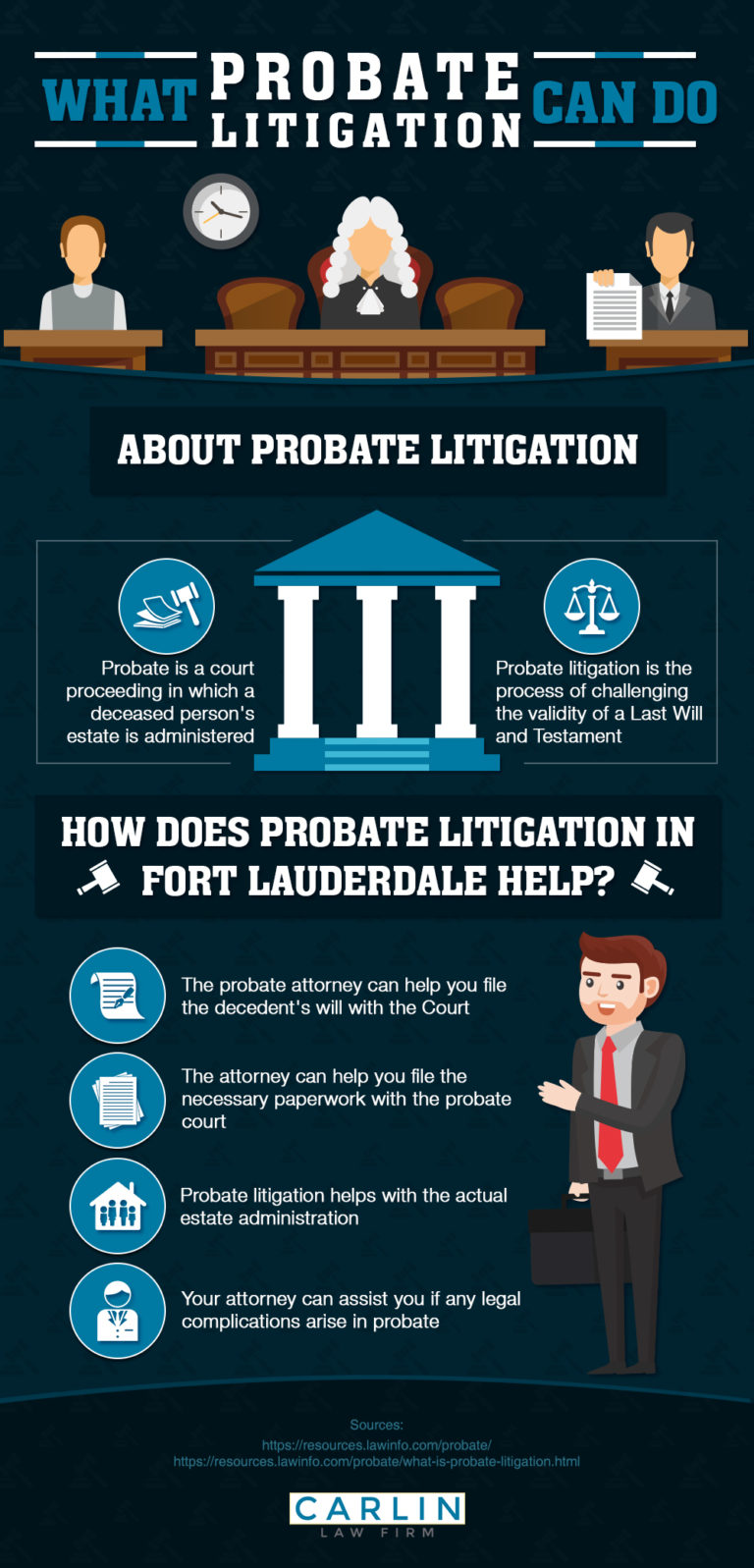This info-graphic entitle ‘The Importance of Probate Litigation’ explains the purpose of probate litigation. When a person dies, his or her estate may need to be administered. This can include the distribution of assets and debts, as well as ensuring that all final wishes are carried out. Probate litigation is the process of challenging a person's Last Will and Testament on the basis that it was not lawfully executed in accordance with state law. Probate litigation can also be used to challenge the validity of a trust document or other estate-related documents.
In the United States, probate is a court proceeding to administer the estate of a deceased person. If an involved party finds that the probate process is not lawfully administered, he or she can initiate probate litigation to challenge the legal validity of the Last Will and Testament. For more information on probate litigation, refer to the info-graphic below.
